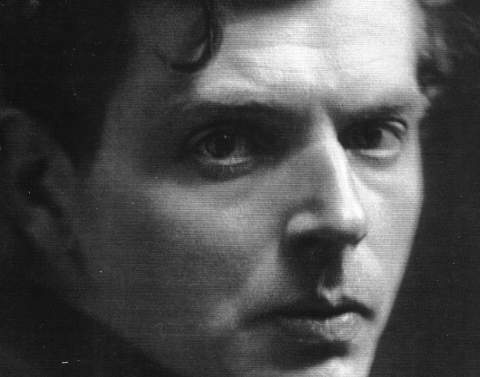|
IVOR GURNEY IN BUCKINGHAMSHIRE

RODERIC DUNNETT writes about landscape and music
When the 24-year-old Ivor Gurney arrived in High Wycombe, England to
take up the post of organist at Christ Church, Crendon Street (sadly the
city centre church is now demolished) the Great War had just broken out.
Declined in l9l4 for military service on the grounds of defective eyesight,
Gurney had already experienced the emotional ups and downs that were to
dog his double career as composer and poet, and that led ultimately to the
asylum. A year earlier he had suffered his first physical and mental breakdown
while studying at the Royal College of Music in London; yet before he arrived
in Buckinghamshire he had already written his five 'Elizabethan' songs,
including his masterpiece, 'Sleep', which were to prove the cornerstone
of his reputation as an English composer.

Gurney, although most closely associated with Gloucestershire, found
another home in the country around High Wycombe. 'If ever I come to write
music', he wrote in l9l5 to Mr Edward Chapman, whose family home, up the
steep hill from the present Castle Museum, provided a weekend bolthole for
him during military training, 'some of it will be around Totteridge, Keep
Hill and that Macbeth-like wood that lies beyond it.'
Although Gurney retained his High Wycombe organist's post until Easter
l9l5, in February that year he was finally accepted and drafted into the
2/v Gloucester regiment. Gurney served as a signaller and -- unusually for
war poets (Isaac Rosenberg was a rare fellow-exception) as a private at
Ypres and the Somme, and was wounded and gassed. Invalided home, he recuperated
in various war hospitals before returning to his musical studies and to
High Wycombe, where he was again organist at Christ Church from l9l9-20.
Gurney's own familiar hills were not Chilterns but Cotswolds, his familiar
views not Downley, Deangarden and Desborough, but Maismore, May Hill and
the Malverns. Strangely, in his poetry and letters Gurney never (as I recall)
actually mentions the Chilterns by name. But he adored them, and his love
of Buckinghamshire stayed with him : 'Walked through lovely avenues of green
and gold in Penn Woods. Saw in the distance my favourite earth view of curving
ploughland and rounded woods (an F major Brahms effect); then after half
a pint of beer once more here to finish your letter, and send you the Slow
Movement long promised.'
Continue >>
Copyright © 17 July 2001
Roderic Dunnett, Coventry, UK
 THE RIGHTNESS OF GURNEY
VISIT THE IVOR GURNEY WEBSITE
<< Music
& Vision home
Bruckner Symphonies >>
THE RIGHTNESS OF GURNEY
VISIT THE IVOR GURNEY WEBSITE
<< Music
& Vision home
Bruckner Symphonies >>
|

